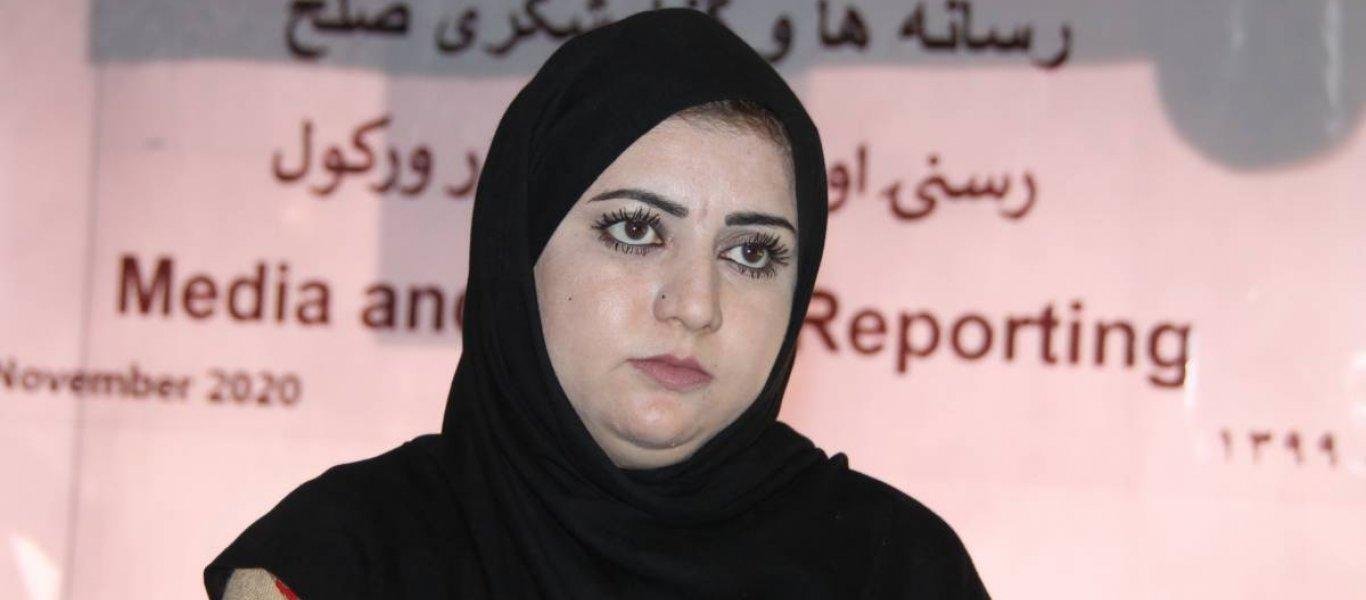Afghanistan: Campaign of targeted killings by militant groups imperils Afghanistan’s already vulnerable civic space
Malala Maiwand
PEN International condemns the targeted killings of journalists, students, and activists by militant groups in Afghanistan. A recent surge in assassinations and suicide bombings by the Taliban and other militant groups has had a devastating impact on Afghanistan’s vulnerable civic space, undermining government protections for free expression and related freedoms.
The assassination of reporter and human rights activist, Malala Maiwand, is the latest in a spate of targeted killings of female journalists and media figures, intended to instil fear and silence prominent female voices in the country. The murder of Malala and her driver took place on 10 December 2020, Human Rights Day, further underscoring the lack of effective human rights protections in the country. Malala’s murder comes just one month after the targeted assassination of former news presenter and PEN member, Yama Siawash, who was killed on 7 November in a blast caused by an explosive attached to his car.
According to the UNESCO observatory of killed journalists, there have been at least 69 journalists murdered in Afghanistan since 2005, the majority of whom were killed in the last four years. The targeted killings of journalists and other media figures is just part of a broader campaign of violence conducted by the Taliban and other militant groups, who seek to use terror to prevent reporting on their activities and undermine basic freedoms in the country. On 18 November 2020, the Afghan journalist community submitted an open letter to the United Nations Security Council highlighting their concerns and calling for the Council to do more to ensure to their security and the protection of freedom of expression in Afghanistan.
Other attacks by militants have focused on the younger generation of Afghan citizens who have chosen to pursue education and its promise of a peaceful future free from oppression. On 2 November 2020, Islamic State gunmen stormed Kabul University and murdered at least 35 civilians, most of whom were students. The attack came just days after a suicide bombing was carried out at a Kabul school where young children and teenagers were attending classes, murdering at least 30 civilians and injuring over 70 more.
Despite the alarming frequency and brutality of attacks on civilians being carried out by militant groups, the Afghan government is currently holding negotiations for a potential power-sharing agreement with the Taliban, a group that is responsible for many of the attacks. The Taliban’s willingness to conduct a campaign of targeted killings of civilians at the very time it is participating in the negotiations casts a dark shadow over any future peace deal.
In response to the recent attacks by militant groups against journalists and other civilians, Salil Tripathi, Chair of PEN International’s Writers in Prison Committee said: “The ghastly, targeted killings of journalists in Afghanistan have continued with appalling frequency. Few journalists and writers have shown such exemplary courage as the Afghans have. That they continue to work in such dangerous surroundings is evidence of their bravery. It is for the Afghan government, and the international community that supports peace-building efforts in Afghanistan, to build a safer Afghanistan. We salute the determination of Afghan journalists as we mourn Malala Maiwand and Yama Siawash”.
While the Afghan government has made repeated pledges to ensure the security of Afghan civilians, there remains a culture of impunity for those responsible for carrying out targeted killings. In July 2020, 200 journalists penned a letter to Afghan President Ashraf Ghani calling the government to follow up on cases of violence against journalists. The following month, three United Nations Special Rapporteurs issued a statement in response to the targeted killing of Human Rights Defenders, noting that “impunity allows for the perpetuation of such crimes”. In accordance with international law, the targeted killings of civilians by militant groups could be considered crimes against humanity, opening the perpetrators to prosecution by the International Criminal Court under the Rome statute.
PEN International calls on the Afghan government and the United Nations Assistance Mission in Afghanistan to increase the robustness of protection mechanisms for those targeted by militant groups, and to hold those responsible to account for their crimes against humanity. Only by restoring justice can the Afghan government hope to break the cycle of violence and honour its commitment to ensure the right to freedom of expression in the country.
For further information please contact Ross Holder, Asia Programme Coordinator at PEN International, Unit A, Koops Mill, 162-164 Abbey Street, London, SE1 2AN, Tel.+ 44 (0) 20 7405 0338, email: ross.holder@pen-international.org

